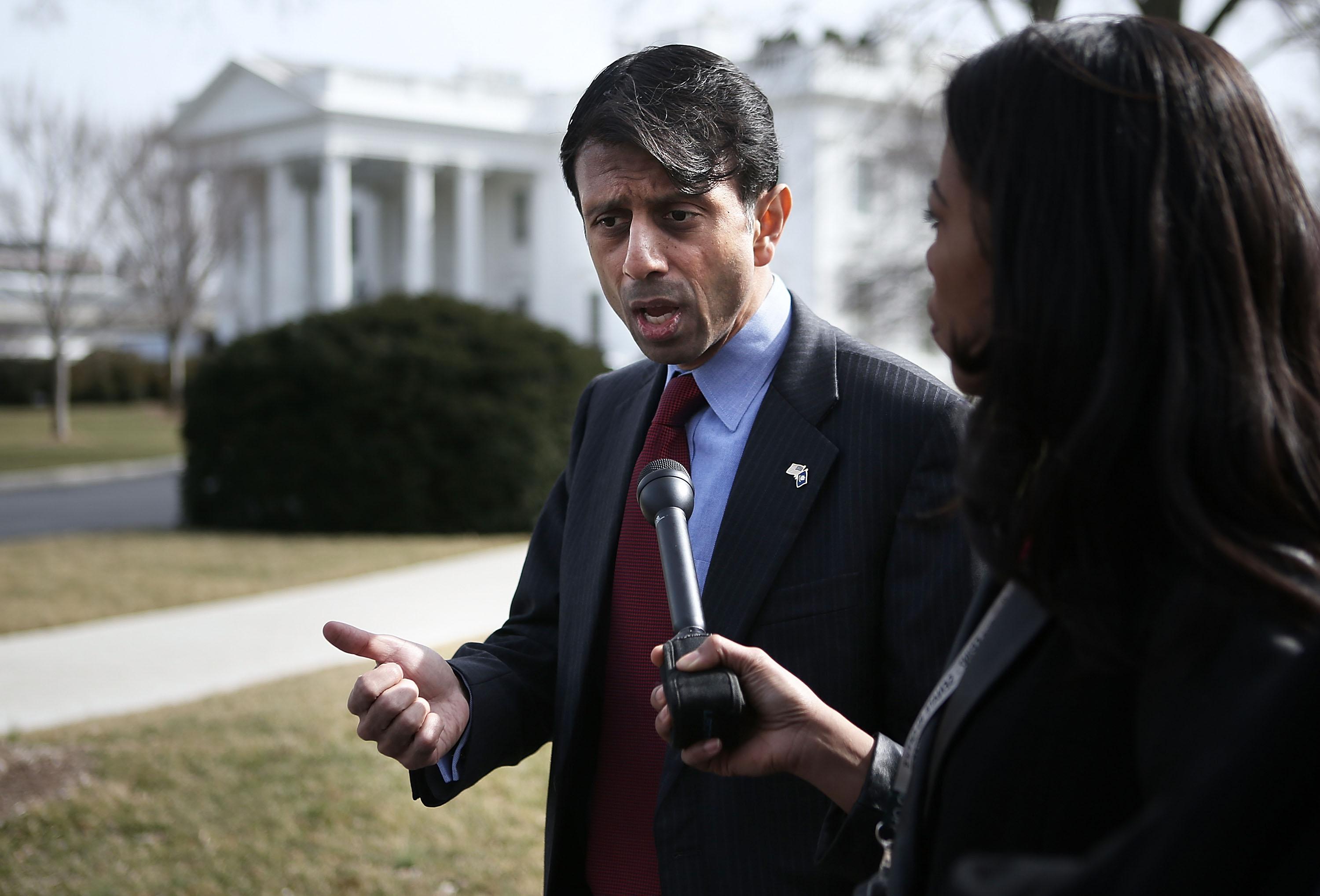Byron York listens to Republican governors talk about the irresponsible Kenyan-born Marxist in the White House who’s making their states suffer under mandatory sequestration cuts.
“I think the president is trying to force us into a false choice,” Jindal said. “The reality is, there is no reason for these cuts to be made this way.” Obama could instruct his Cabinet to emphasize cuts to spending on things like consultants, Jindal said, and not on things like Head Start. “It is the president’s job as the chief executive to prioritize.”
South Carolina Gov. Nikki Haley said the governors asked Obama to come up with better cuts, or even to delay future spending, like the Medicaid expansion in Obamacare, if the budget situation is as dire as the administration says. “The answer to everything we got was no,” Haley said.
Jindal said that, huh? Well, it’s almost the fourth anniversary of this.
Louisiana Gov. Bobby Jindal announced Friday that he will decline stimulus money specifically targeted at expanding state unemployment insurance coverage, becoming the first state executive to officially refuse any part of the federal government’s payout to states.
Let’s be fair: The stimulus fight of 2009 was the first semi-schism between congressional Republicans and Republicans in the states. The vast majority of Republican governors dropped the pretense that their states are laboratories of Horatio Alger-ism that don’t need federal money to pay for services. They took the stimulus money. But opposition to the stimulus has become a badge of honor, as we can see in this ad for Nikki Haley’s mentor.
There’s some consistency between 2009 Jindal and 2013 Jindal. He wants federal money, which comes from taxpayers in 49 other states, to be given back to Louisiana in a form the state has more control over.
